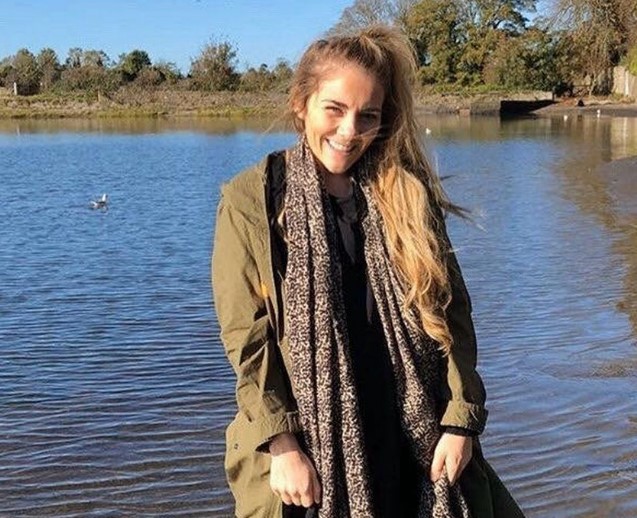“Even though a person suffering hates the eating disorder, it’s still the one thing in the world that makes us feel safe like a child that has a security blanket”
Amanda Lynch was diagnosed with Anorexia Nervosa eight years ago.
The Dublin womans’ condition escalated so quickly, it cost her her dream career.
Looking back, Amanda admits to spending most of her teens comparing herself to other girls bodies believing she was fat.
She soon began buying diet pills online to try and lose weight, something which she now regrets.
She told RSVP Live: “I know now how dangerous this was because I had no idea what was in them, they would make my heart race. They made me lose a lot of weight very fast.
“It became more and more difficult to source them as there was a banned substance in them, It wasn’t long until my eating disorder behaviours escalated.”
The Kilmore woman soon began severely restricting her food, counting calories, abusing laxatives and compulsively weighing herself – sometimes ten times a day or more. Looking back, she realised just how dangerous it was.
She said: “I could have easily died, but the thing is when you’re in the grips of an eating disorder nothing scares you. If someone had said to me “if you engage in eating disorder behaviours today you will die” – I’d still do it because it makes you feel like you are invincible, like nothing bad will happen to you, that stuff only happens to other people, my body can cope.”
Amanda’s condition deteriorated so fast, the former social care worker had to give up her career: “It was on the advice of my GP to leave work. We looked at different treatments and it was obvious I needed an inpatient admission. I needed a safe environment where I could get my eating disorder under control.
“By this stage I was very high risk for refeeding syndrome, which is a complication when a person begins to eat again their electrolytes can go out of balance. It can cause cardiac arrest so it needed to be monitored by professionals.”
In Ireland it’s estimated 200,000 people suffer with an eating disorder. The HSE is in the process of rolling out a five year plan to improve the services, There are three private inpatient units for eating disorders in Ireland and just one residential inpatient treatment facility.
In 2017 she was admitted to Lois Bridges, a seven bed residential eating disorder unit in Sutton in North Dublin.
Speaking about the facility, Amanda says she received great support during her time there: “I made great progress, the team at the unit are extremely supportive. Everyone’s journey is different, I’ve met people who have had one admission inpatient and have gone on to dream career, to have babies and get married. All because of the support they received here.
“For some people however it doesn’t always go that way, sometimes it can take time, it can be a rollercoaster of relapse/recovery and people may need more than on admission in any treatment facility, it’s quite common. Please always be aware that nobody is “cured” after 12 weeks.
“Years of suffering can’t be fixed in 12 weeks, but it can certainly get you on the road to recovery. I think this is a very important point to make. I think the HSE need to put services in place for when a person is discharged from an inpatient setting so that the person can use the vital skills they have learned at an eating disorder unit while continuing their recovery journey.”
Sadly as the months went on, she slipped deeper back into the grips of anorexia and was admitted for the second time. To this day, she is struggling with the illness: “I am currently not doing too well one year after discharge. I don’t really want to have to do another admission, so I’ll keep trying to stay afloat, but it’s difficult.
“The voice in my head is strong, and it feels a lot stronger than me. It’s so difficult to let go of an eating disorder, I often explain it to people who don’t understand what it’s like as like having Stockholm Syndrome, living with an abuser in your head that is hurting you, yet you’re loyal to it and want to protect it even though it’s trying to kill you.”
Amanda says there are many misconceptions about eating disorders and they are much more complex as people believe. She explains: “The real issues behind an eating disorder are so much deeper, people use their eating disorder as a means of controlling their emotions, my eating disorder stemmed from severe anxiety.
“I couldn’t control what was happening around me but I could control what I ate, and that made me feel in control of things, it’s never something you are conscious of it just slowly manifests that way. Unfortunately, it starts to control you before you know it.
“Even though a person suffering hates the eating disorder it’s still the one thing in the world that makes us feel safe like a child that has a security blanket. It’s the strangest illness and can only be truly understood by someone who has been through it, I often say it makes absolutely no sense but complete and utter sense all at the same time.”


